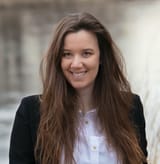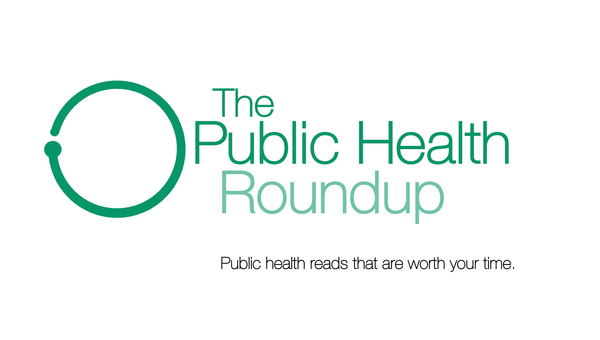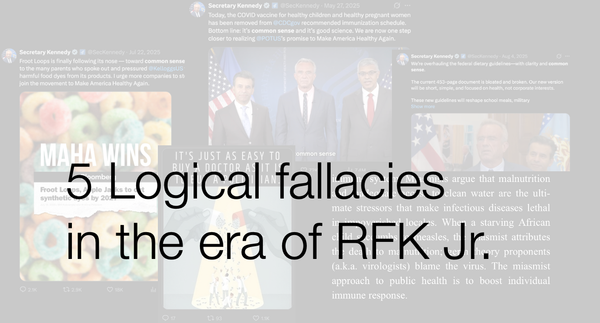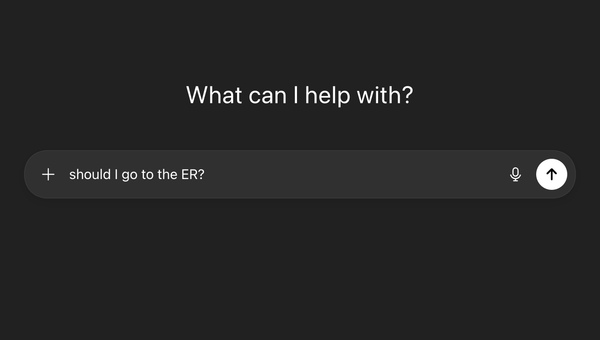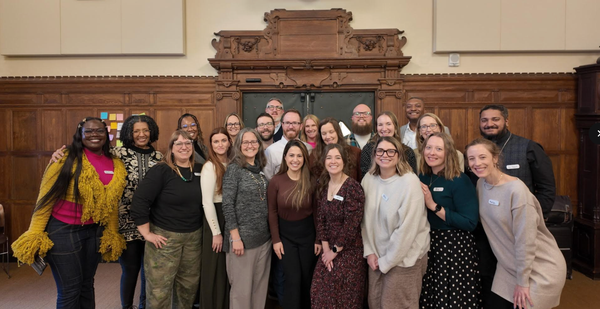What we misunderstand about doing 'doing your own research'
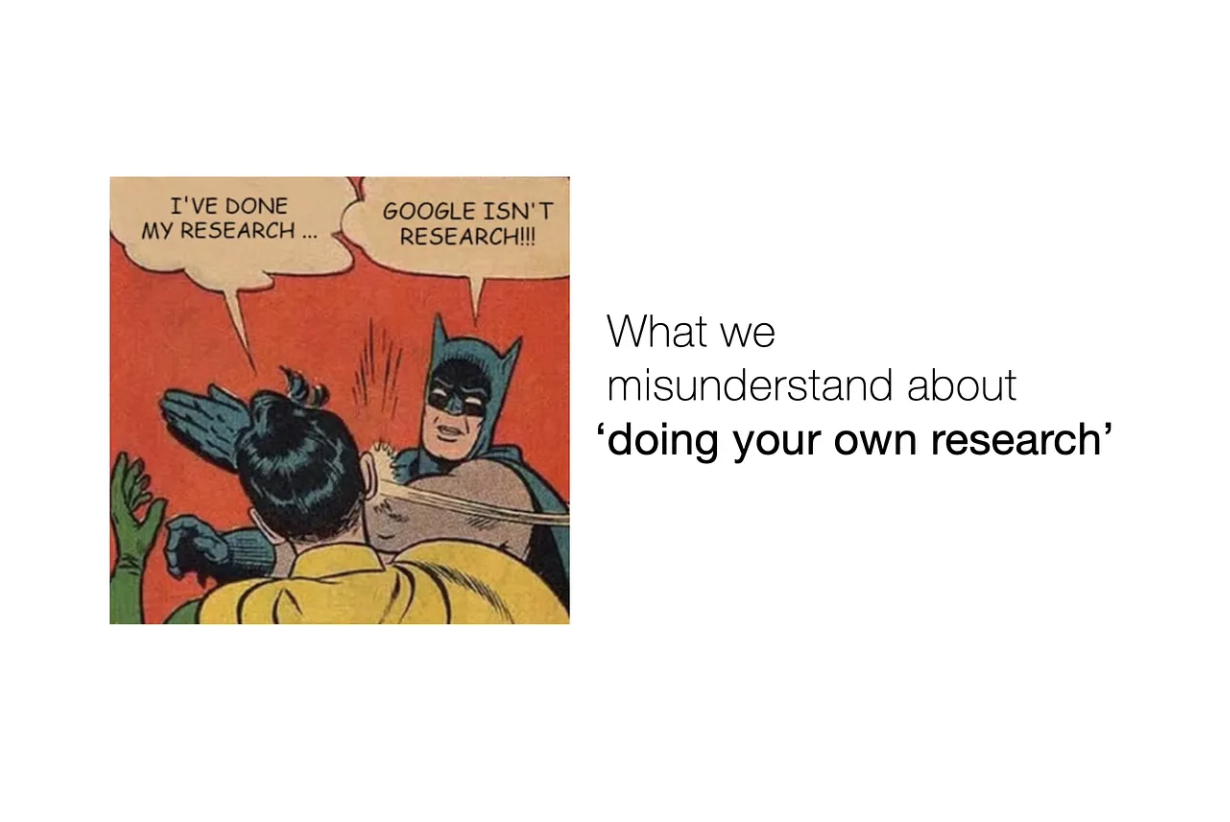
A version of this article originally appeared on Your Local Epidemiologist.
Like “misinformation” and “disinformation,” the phrase “doing your own research” has become deeply polarizing.
To some, it’s a call to think critically about health information and do their due diligence before making health decisions. To others—especially in science and medicine—it represents the mistaken belief that a Google or AI chatbot search can substitute for years of scientific and medical training.
Adding to the polarization, some prominent voices use this phrase to undermine trust in clinicians, urging people to reject medical advice in favor of their own research. In response, some in science and medicine view the desire to do your own research as an outright rejection of expertise, and respond with ridicule.

But this dysfunctional dynamic misses the bigger picture of what’s happening. For many, this phrase represents a sincere effort to find answers they’re struggling to get elsewhere. And when that genuine search for information is met with an expert’s scorn, it can push people away from trustworthy sources.
Why are people doing their own research?
Health information is complicated, confusing, and conflicting. People are often told to take their medical questions to their doctor, but for many this is unrealistic. Over 100 million Americans encounter barriers to accessing primary care, wait for appointments for months, and many find a 15-minute visit isn’t enough time to answer a year’s worth of questions.
So people turn to alternative sources of information—their friends, family, social media, and the internet. To some degree, we are all forced to do our own research and navigate the confusing health information landscape on our own. And it’s not easy.
- Reputable online health information is too complicated. Most reputable sources of online health information (like government and academic websites) are written at a 10th grade to college reading level—far above the recommended 6th grade level—making them hard for many Americans to understand.
- “Experts” sometimes give conflicting answers. “Trust the experts” isn’t simple when they’re not all saying the same thing. This sometimes occurs due to true lack of consensus over emerging data, and other times due to a few loud (but incorrect) voices sowing confusion.
- People feel like they have to be their own investigative journalist. Bias (real and perceived) is everywhere, and people feel a responsibility to sort through the information they receive. A recent focus group found that people feel a responsibility to fact-check, source, and synthesize the vast amount of information they encounter, tasks that were traditionally ascribed to journalists.
- The desire for “unfiltered” knowledge and autonomy. Many people want raw information they can interpret themselves—without it being filtered through someone else’s values or bias—so they can apply their own values to their health decisions.
Everyone—to some degree—is doing their own research for health information. We cannot escape it in this information age.
For some, the answer is simple: ask your doctor or look on the CDC or university website. For others, the answer is not so simple—they don’t trust those institutions, the information is incomplete or difficult to understand, their doctor didn’t know or dismissed them for even asking, or they’ve heard conflicting information from another trusted source and are left unsure who to believe.
This has led hundreds of thousands of people to try to find answers on their own.
“Doing your own research” is hard, and easy to get wrong
The problem, of course, is that investigating things on your own takes time and skill, and it’s easy to get it wrong. Nobody can do all of the work on their own; ultimately everyone must rely on other people’s data, analysis, and summaries. This can sometimes send a well-intentioned beginner on a quest for knowledge that goes sideways:
- The beginner’s bubble. In early stages of learning, confidence tends to increase faster than skill, meaning people often overestimate their accuracy when they are first learning something new.
- The quest to “do it all on your own” can backfire. “Epistemic superheroes” want to figure out everything on their own and distrust other people’s information. But their task is impossible—nature is too complex for us to solve by ourselves. When the “trust no one” mantra inevitably leads to “I must decide who to trust,” it is easy to gravitate towards other like-minded skeptics. This creates a highly biased information bubble, the exact opposite of the original goal.
- Assuming “unbiased” knowledge will contradict consensus. For many, doing their own research began with doubting the consensus view. Challenging consensus is healthy when new data emerges, but assuming “real” truth always opposes the consensus creates bias, undermining the search for unbiased answers.
- Avoiding responsibility. Some use “do your own research” to avoid citing sources, encouraging others to do their own research to figure out if it’s true. This allows people to spread unverified information while giving the appearance of supporting autonomy, and shifts the burden of proof entirely onto the audience.

How do we stop talking past each other, and what should we do instead?
In today’s health landscape, doing your own research is unavoidable. But too often, it leads to people navigating complex and at times conflicting information without the tools to make sense of it. Rejecting expertise is not helpful; mocking people for doing their own research is not helpful either. Here’s how we can do a better job meeting in the middle:
- Recognize the value of experience. No generation before has had the information-sorting task that we have, and it’s hard. Experts play a critical role in helping people navigate the noise. A bias against expertise will derail the quest for unbiased information.
- Don’t demand trust because you’re an expert. On the flip side, experts should realize that “trust me I’m an expert” doesn’t work well anymore. Expertise matters, but building trust is often more about how we treat people than the letters after our names.
- Offer knowledge, don’t push it. For those who want more autonomy in their health decisions, offering knowledge is helpful, but telling them what to do is not. For this audience, it’s more helpful to provide information (“the benefits of the MMR vaccine outweigh the risks, here’s why”), without telling them how to use it (“you need to vaccinate your child.”)
- Acknowledge uncertainty in the data. When the data aren’t straightforward, we must embrace nuance—acknowledge what we do and don’t know instead of giving overly simple answers.
- Don’t gatekeep, do explain. Telling people not to read research studies because it’s “too complicated” won’t stop them, but it will alienate them. Instead, invite people to understand the data: “here’s why that study was flawed” is a whole lot better than “stop trying to read papers you don’t understand.”
In our chaotic health information landscape, many people are being forced to “do their own research” as they try to sort fact from fiction. While some use this phrase to sow distrust, there are many more who genuinely want a better understanding of health information to make informed decisions. Experts can help rebuild trust by meeting people where they are, partnering with them in their search for answers, and offering tools to help them navigate the chaos.
Kristen Panthagani, MD, PhD, is completing a combined emergency medicine residency and research fellowship focusing on health literacy and communication. In her free time, she is the creator of the newsletter You Can Know Things and author of Your Local Epidemiologist’s section on Health (Mis)communication. You can subscribe to her website below or find her on Substack, Instagram, or Bluesky. Views expressed belong to KP, not her employer.
